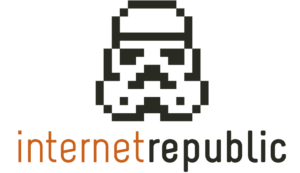
Machine Learning and SEO: How it works, applications and APIs
Machine Learning is becoming increasingly relevant in SEO. Although the technology has not developed a lot yet, there is a growing number of companies and SEOs that are exploring the possibilities that this practice offers to learn and analyse BIG DATA more efficiently.
BIG DATA is a technology that collects a huge amount of data for analysis and the ulterior defining of a strategy based on the goals of an organization. The problem lies in how to collect all these data and especially how to analyse them afterwards. We are dealing with a great amount of information here. And here is where Machine Learning takes its point of departure.
Machine Learning could be defined as a system to create automatic processes so that the machine learns patterns throughout millions of data, which will enable it to predict future behaviours.
During the last Brighton SEO 2016, Jan Willem Bobbink gave the following example:
With the data about the price of houses in Munich over the past 50 years, the machine learning process could be defined as the process of predicting what would be the most recommendable prices for houses for sale in Munich in the future.
This is where Machine Learning would come into place. Machine Learning would take the sales prices of the last 50 years, creating behaviour purchase patterns among the millions of data so that we can correctly predict the price.

The aim of Machine Learning is not providing the perfect answer, but the best option possible in light of the data provided.
- How to apply Machine Learning to SEO?
Image the possibilities of applying Machine Learning to the purchase processes of online stores. The technology could predict behaviour patterns and thus define SEO strategies aimed at reaching the highest rate of possible conversions and visibility.
An example of these possibilities of Machine Learning and SEO would be scrapping all the data from hotel reviews defining the behaviour of the users-what does and does not the user like about the hotels-from millions of reviews to improve the purchase process or the services offered. For example:
- Gauge the main feelings and concerns relevant for the users in order to generate and improve the internal linking of the hotel’s site.
- Extract the data and process them taking into account the time it takes to generate them, so that we can predict future behaviours and generate landing pages for them.
This kind of strategies are already in use with the users’ data analysis. The difference is that in Machine Learning the processing of data would take place at an impossible scale or hardly replicable by any individual. Moreover, it generates a learning process about the data that helps filter more efficiently the results obtained.

Here you have some documents about Machine Learning that might be of interest:
http://www.cs.cmu.edu/~tom/10601_fall2012/lectures.shtml
http://pdf.th7.cn/down/files/1312/machine_learning_for_hackers.pdf
https://work.caltech.edu/telecourse.html
And if you are ready for action, here is a list of 50 APIs for Machine Learning:
http://blog.mashape.com/list-of-50-machine-learning-apis/
Artículos relacionados
Internet República
Latest posts by Internet República (see all)
- New Instagram update: reel achievements - 19 October, 2023
- Elon Musk has bought Twitter. What does this mean? - 27 April, 2022
- NFTs ARE ARRIVING ON SOCIAL MEDIA - 21 February, 2022






